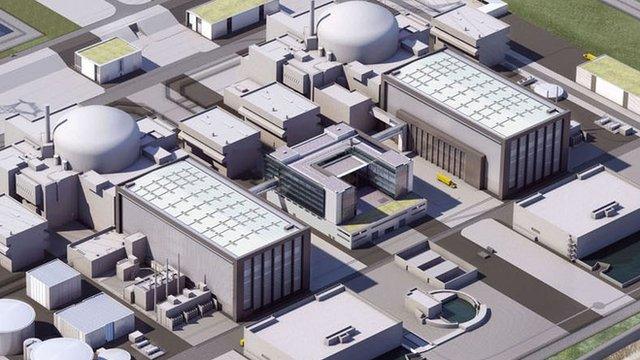Hinkley Point nuclear agreement reached
- Published
President Xi Jinping: "China attaches great importance to (the) protection of human rights"
EDF Energy has reached an agreement with China General Nuclear Power Corporation (CGN) for a nuclear power plant at Hinkley Point, Somerset.
It was confirmed at a news conference by Prime Minister David Cameron and Chinese President Xi Jinping.
The mainly state-owned EDF said the final cost would be £18bn. State-owned CGN will pay £6bn for one third of it.
EDF said it might sell another 15% stake in the project, but would maintain a majority holding.
President Xi has been meeting Prime Minister David Cameron, on the second day of his UK state visit.
More than £30bn worth of deals between the UK and China are expected to be struck during the four-day visit.
The agreement also set up a wider UK partnership to develop new nuclear power stations at Sizewell and Bradwell.
While they have reached Strategic Investment Agreements for all three plants, only Hinkley has a target date - it is supposed to start generating in 2025.
The Bradwell project is planned to include a Chinese-designed reactor.
BBC business editor Kamal Ahmed says the final investment decision, which should largely be a formality, by EDF and CGN will now be taken in the next few weeks.
Last month, Chancellor George Osborne visited China and secured the deal under which Beijing will invest in Hinkley Point.
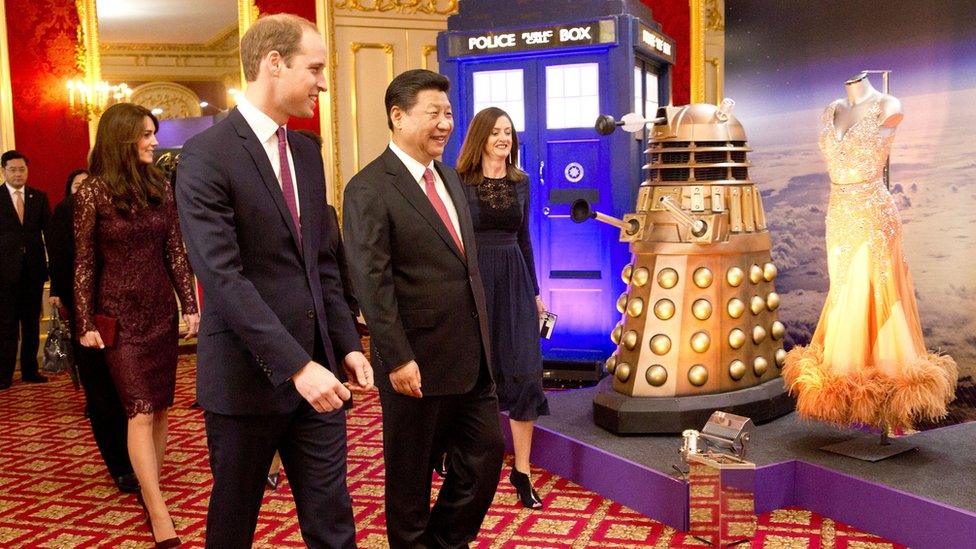
President Xi also attended a "Creative Collaborations" event with Prince William
'Security concerns'
The Hinkley Point project has come under fire over its cost and the delays to investment decisions and the timetable for building.
The government has also been criticised for guaranteeing a price of £92.50 per megawatt hour of electricity - more than twice the current cost - for the electricity Hinkley produces.
That could mean higher bills for consumers, critics such as Greenpeace say.
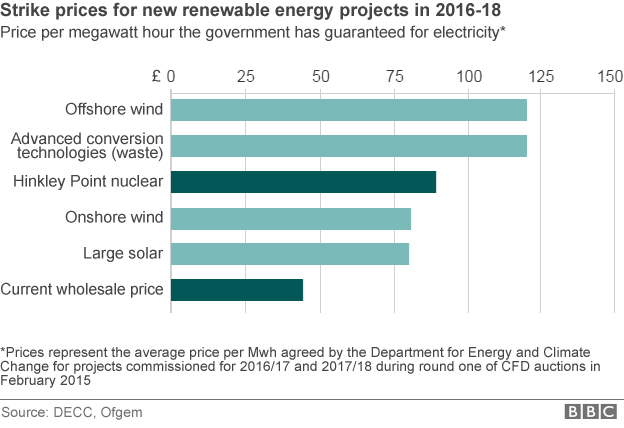
The government insists that 25,000 jobs will be created and enough energy to power six million homes.
Opponents have also raised security concerns about allowing China a central role in Britain's nuclear future.
But Lord Sassoon, chair of the China Britain Business Council, told the BBC's Today Programme he could not see what the problem was.
"Why would they want to turn off a nuclear power station in which they had some ownership?
"It doesn't seem terribly logical to me, except in extreme circumstances in which that would be the least of the UK's problems."
Meanwhile, from January, the government is planning to run a pilot scheme that will allow Chinese tourists to get a two-year tourist visa for £85 - these currently cost £324.
The prime minister's spokeswoman said the move was designed to boost the number of Chinese tourists coming to Britain.
The number has more than doubled over five years, with the tourism worth nearly £500m per year to the economy.
But China has faced criticism over its treatment of dissidents.

China and the UK
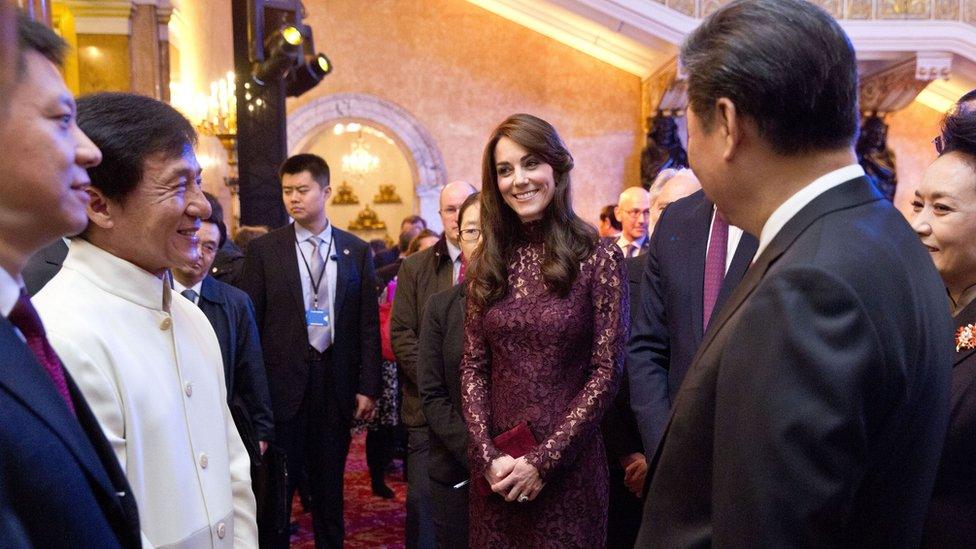
President Xi and the Duchess of Cambridge met kung-fu star Jackie Chan at the "Creative Collaborations" event

The Treasury hopes that within 10 years China will be Britain's second biggest trading partner.
But the visit comes amid job losses in the UK steel sector, with cheap Chinese imports among the factors being blamed.
Tata Steel has announced the latest in a series of cuts, with 1,200 jobs going at its plants in Scunthorpe and Lanarkshire. Mr Cameron has said he will raise the steel issue in his talks with Mr Xi.
Following talks at Downing Street, he will visit Chinese communications firm Huawei's UK offices before a banquet hosted by the City of London at the Guildhall.
Steve Hilton, a former policy adviser to David Cameron, told BBC Newsnight the UK should be imposing sanctions on China over issues such as its "vicious political oppression" and its "relentless cyber attacks", instead of "rolling out the red carpet".
"This is one of the worst national humiliations we've seen since we went cap in hand to the IMF in the 1970s," said Mr Hilton, who left Downing Street in 2012.
"The truth is that China is a rogue state just as bad as Russia or Iran, and I just don't understand why we're sucking up to them rather than standing up to them as we should be."

Analysis: Business editor Kamal Ahmed
Kamal Ahmed interviews Zheng Dongshan, senior vice-president of the Chinese state nuclear business, CGN
Zheng Dongshan, senior vice president of the Chinese state nuclear business, CGN, (and therefore, of course, a leading member of the Communist Party) told me that China wants to protect its reputation and would do nothing to put that at risk.
The multi-billion pound deal signed today between the UK and Chinese governments means that if everything goes to plan - and that is certainly a huge, hairy if given the regular delays in any nuclear project - the first new nuclear power station for 30 years could be operational by 2025.
And China will have a major role in building and operating it.

China state visit: At a glance
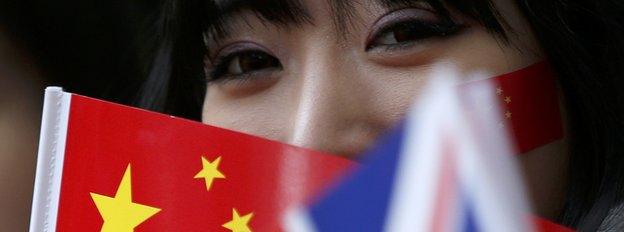
Wednesday
Imperial College London visit
Meeting with David Cameron at Downing Street
Thursday
Visit global satellite communication services company
Dinner at Chequers
Friday
University of Manchester visit
Event at Manchester Airport before departure

- Published21 October 2015
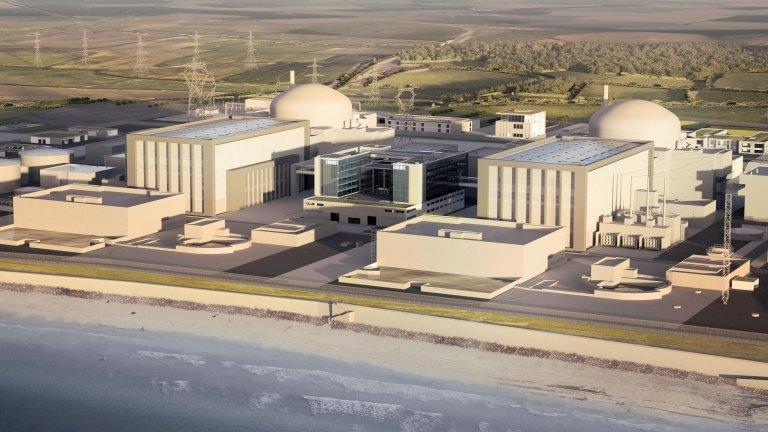
- Published21 October 2015
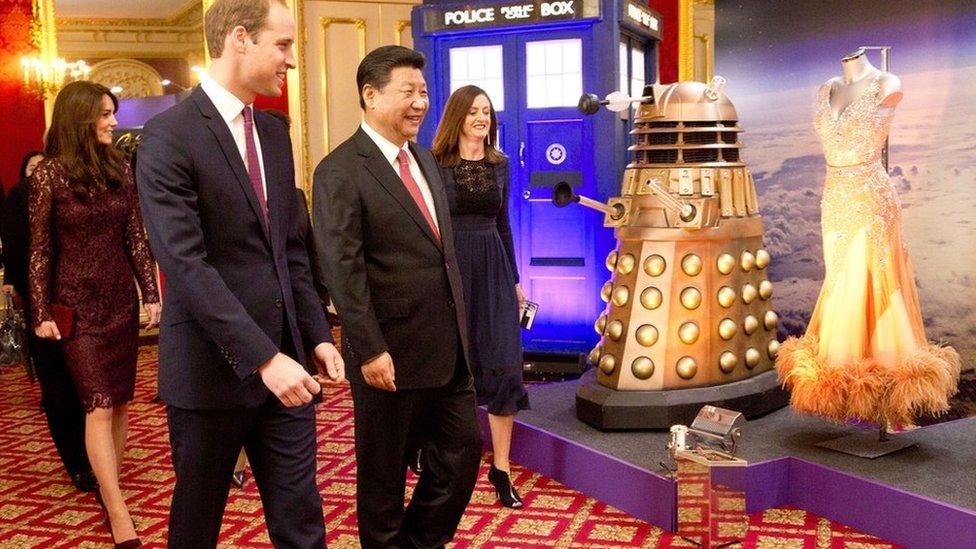
- Published21 October 2015
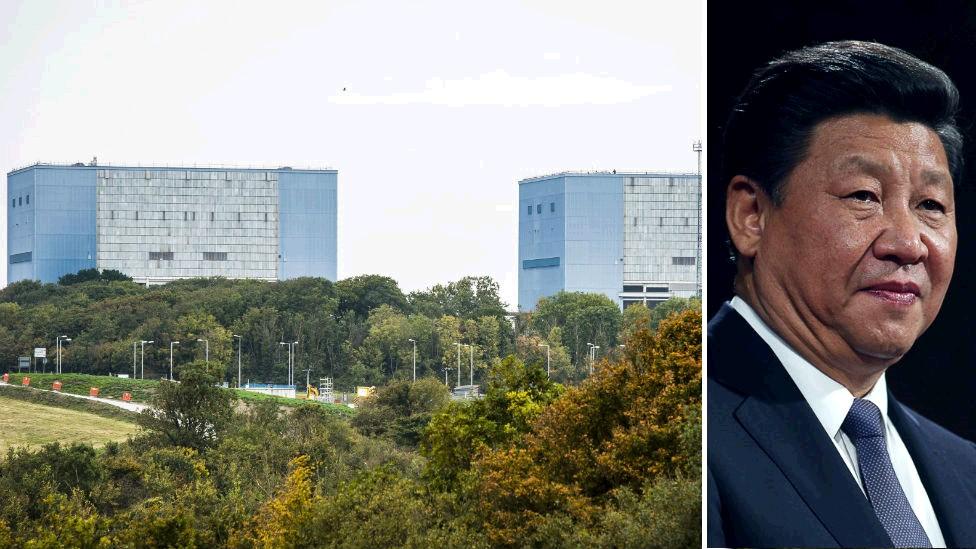
- Published20 October 2015
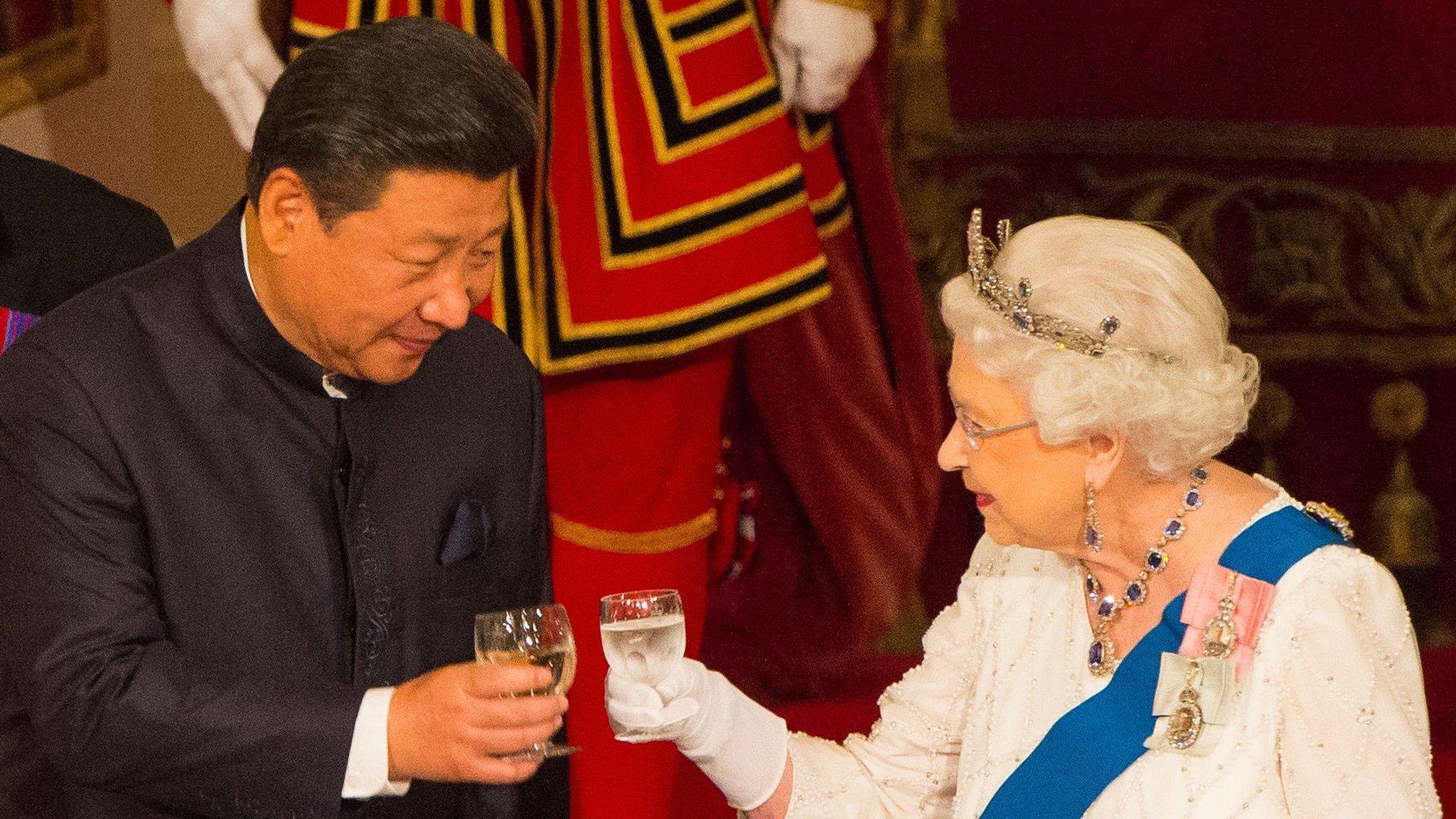
- Published20 October 2015
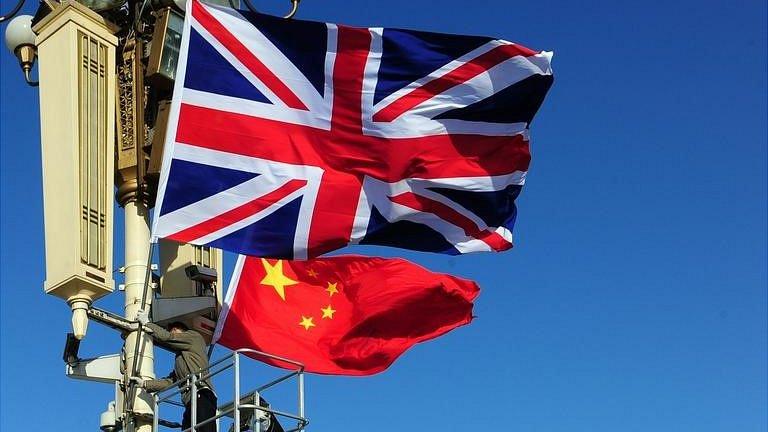
- Published21 September 2015
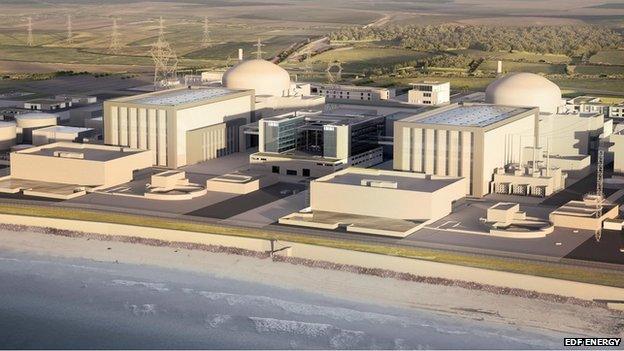
- Published18 October 2015
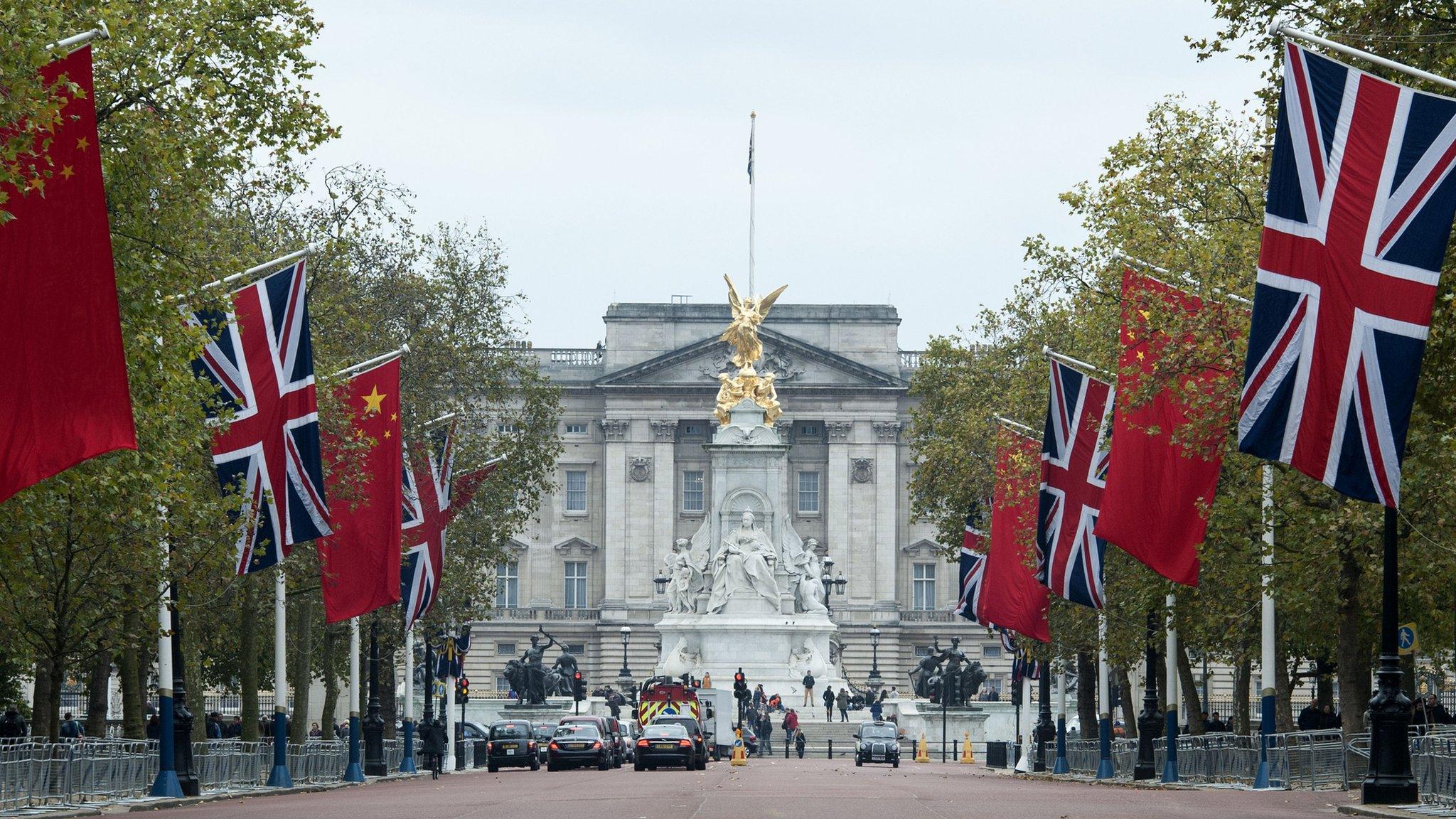
- Published24 September 2015
- Published21 September 2015
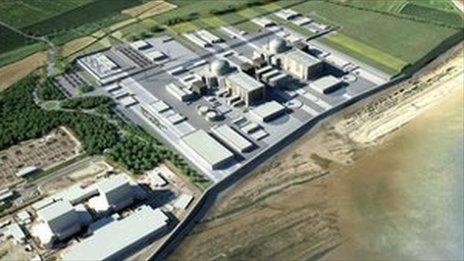
- Published21 September 2015
